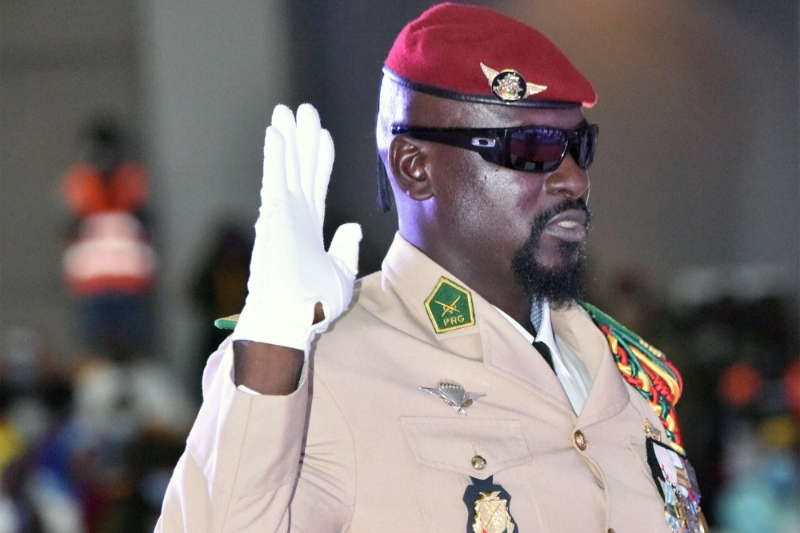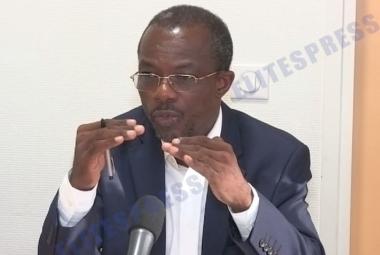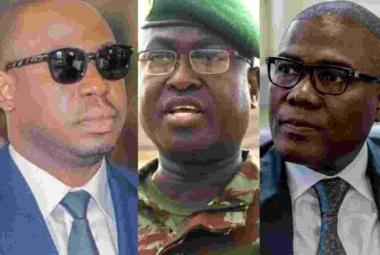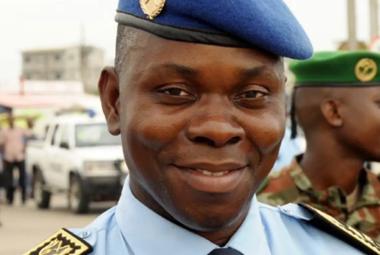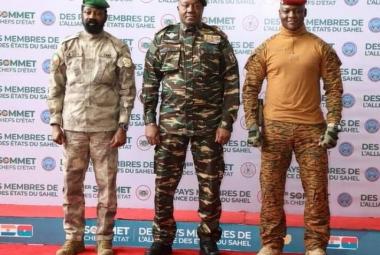Since the unexpected and saving coup for many Guineans and especially the political class in particular, the military junta has promised a rebuilding towards a democratic renewal. Lieutenant-Colonel Mamady Doumbouya, who overthrew ex-President Alpha Condé, and his men from the National Committee for Rally and Development (CNRD), seemed resolutely on the right track. But for a few months already, we are entitled to ask ourselves many questions about the real objectives of the military junta, with regard to its management of power.
“This is the place for me to thank all those who have contributed to the success of this various works. Every Guinean has the right to speak, everyone's opinion counts. It is the will of the majority that settles the contradictions. A median proposal emerges for a consensual duration of the transition of 39 months. The CNRD and the government in turn will submit to the CNT (Editor's note: National Transitional Council), which takes the place of Parliament, this proposal which is the result of broad and patient consultations”.
These are, among others, the remarks that Colonel Mamady Doumbouya made during a speech to the Nation for the Guineas on April 30. Not without specifying that he does not decide alone, that he acts with everyone. Invoking, in passing, the national days of consultation, the national meetings and now the framework for consultation and dialogue, which made these conclusions provisional, he adds. It remains to be seen how the Economic Community of West African States (ECOWAS) will take this announcement. The institution that had previously demanded the shortest possible Transition.
After the coup that overthrew ex-President Alpha Condé on September 5, 2021, the ruling military junta raised a lot of hopes about putting the country on the path to democracy as soon as possible. Especially since, unlike many other countries, Guinea has not experienced the horrors of Jihadism and other terrorist acts that led to coups in Mali and Bukina Faso.
In the aftermath of the coup, the country first had a Prime Minister in the person of Mohamed Béavogui, a senior international civil servant. As promised, President Mamady Doumbouya had appointed him to lead the Transitional Government, as a personality with a so-called technocrat profile. Far from the political quibbles of the country.
Former Under-Secretary-General of the United Nations in charge of the Pan-African Risk Management Mutual Fund, official of the International Fund for Agricultural Development (IFAD), and of the FAO, he is a man steeped in experience in the United Nations system who was preferred by the National Committee for Gathering and Development (CNRD). It is up to him to lead Guinea safely according to the schedule outlined. As a legislative body, the National Transitional Council (CNT) will be at its side in order to put the country back together on the track of democracy. Which was seriously abused with the third term of ex-President Alpha Condé by a biased process against a backdrop of political violence and violation of human rights.
After consulting the Guineans, the CNRD has drawn up and announced the main lines of the Transition which should lead to a return to constitutional order. With the key, the establishment of the bodies necessary for the organization in particular of a presidential election. The road to this goal is long and full of pitfalls. Given that a new Constitution is needed to be proposed to Guineans for adoption by referendum. The development of an electoral calendar with the tools that accompany the preparation of future elections, whether local or national.
As we could see, the CNRD had already paved the way with the systematic exclusion of those who endorsed or took part in the third term of ex-President Alpha Condé from the Transition process as well as than other institutions. It was the same for future elections in which the members of the CNRD, including, will not be able to stand.
In the eyes of the peoples of West Africa, something new was being built in Guinea. The Economic Community of West African States (ECOWAS) having lost all credit for ensuring that member Heads of State and Government respect their commitments in terms of democracy and transparent elections.
During the consultations for the implementation of &the transition process, President Mamady Doumbouya had declared: “We do not tolerate any exclusion, we do not tolerate any individual and partisan calculation, we do not tolerate any partisan strategy. The only valid calendar is that of the people of Guinea who have suffered so much”. And the Guineans as well as nationals of West Africa had taken to dreaming that the military junta in power would go through with its commitments in the name of the higher interest of Guinea and the Guineans, in making the latter the only sovereigns and Democratic Renewal the only ambition of his coup d'Etat. In short, by refusing the temptation of power under any pretext. With the duration of the Transition thus announced, we are already a long way from the good intentions and professions of faith of the beginning. To the enthusiasm of the first hours following the coup, the populist measures of the military to reassure the citizens of the country and ECOWAS have fizzled.
By Moctar Diallo



